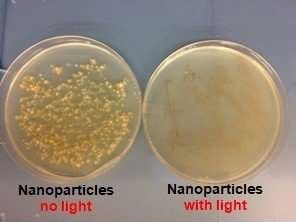Page 9496
Aug 20, 2018
Stratolaunch has confirmed what most people have long speculated: it’s developing its own launch vehicles for its air-launch system
Posted by Klaus Baldauf in category: space travel
Stratolaunch has confirmed what most people have long speculated: it’s developing its own launch vehicles for its air-launch system, including a reusable space plane that could eventually carry people.
Aug 20, 2018
Strange Lakes Are Speeding Up Arctic Permafrost Melt, And That’s Really Bad News
Posted by Bill Kemp in categories: biotech/medical, sustainability

The Arctic permafrost really should stay frozen. In many places it’s been frozen for tens of thousands of years, locking away greenhouse gasses and ancient diseases.
Unfortunately, our planet’s changing climate is denting permafrosts around the world. And now NASA-funded research has confirmed that the expected gradual thawing of the Arctic permafrost is being dramatically sped up by a natural phenomenon known as thermokarst lakes.
Aug 20, 2018
6 Flying Cars That You Might Actually be Able to Own (And Fly) in Your Lifetime
Posted by Bill Kemp in category: transportation

Just like the way that cellphones used to be only for the rich, soon the idea of taking a personal flying machine to work is going to be a part of everyday life. Don’t believe us? Here are six examples of personal flying cars and even a personal jetsuit that will help us commute.
Aug 20, 2018
Kelsey Moody — Antibody Mimetic for Parkinson’s Disease
Posted by Steve Hill in categories: biotech/medical, business, engineering, life extension

Today, we would like to share with you the talk given by Kelsey Moody, CEO of Biotech Company Ichor, at the recent Ending Age-Related Diseases: Investment Prospects & Advances in Research conference in New York City. In this talk, Kelsey discusses Ichor’s protein engineering platform, how Ichor has used it, and Ichor’s plans for using it to discover new classes of drugs for age-related diseases.
Kelsey is a process-oriented biotechnology executive who has specialized in the study of aging and aging mechanisms for over a decade. Since 2013, he has successfully built Ichor Therapeutics from a living room start-up into a premier, vertically integrated contract research organization that focuses on preclinical research services for aging pathways. Proceeds from this work are used to self-fund R&D initiatives that constitute Ichor’s portfolio companies in enzyme therapy (Lysoclear, Inc.), small molecule drug discovery (Antoxerene, Inc.), and protein engineering (RecombiPure, Inc.) Kelsey has received graduate-level training in medicine, business, and laboratory research.
Aug 20, 2018
Ethiopia opens plant to turn waste into energy
Posted by Bill Kemp in categories: energy, government, sustainability
Ethiopia on Sunday inaugurated a power plant which converts waste into energy, next to a filthy open-air dump in Addis Ababa where a landslide last year killed more than 110 people.
Named Reppie, the facility is the first of its kind in Africa, according to the government and the British company Cambridge Industries behind the project, and will turn 1,400 tons of waste per day into energy.
Ethiopian President Mulatu Teshome said at the ceremony that the country “has been investing extensively in hydro power, geothermal, wind energy and now biomass to boost the manufacturing sector with a supply of clean, renewable energy.”
Aug 20, 2018
Bill Gates Says This Book Is ‘One of the Most Important’ He’s Ever Read
Posted by Alex Deadpool in category: education
: You’ve called Hans Rosling’s Factfulness “one of the most important books I’ve ever read.” What makes it so significant?
Gates: Hans believed the world was making remarkable progress, and he wanted everyone to know about it. Factfulness is his final effort to help people identify areas where things are getting better and spread that improvement. It explains more clearly than almost anything else I’ve read why it’s so difficult for people to perceive progress. He offers clear, actionable advice for how to overcome our innate biases and see the world more factfully. This is one of the most educational books I’ve ever read, and I think everyone can benefit from Hans’ insights.
If the world really is improving at a faster rate than people think, why does it matter whether people have incorrect notions about it?
Aug 20, 2018
It’s Not Technology That’s Disrupting Our Jobs
Posted by Derick Lee in categories: economics, education, employment, mobile phones, robotics/AI
We can’t turn back the clock, but neither is job insecurity inevitable. Just as the postwar period managed to make industrialization benefit industrial workers, we need to create new norms, institutions and policies that make digitization benefit today’s workers. Pundits have offered many paths forward — “portable” benefits, universal basic income, worker reclassification — but regardless of the option, the important thing to remember is that we do have a choice.
When we learn about the Industrial Revolution in school, we hear a lot about factories, steam engines, maybe the power loom. We are taught that technological innovation drove social change and radically reshaped the world of work.
Likewise, when we talk about today’s economy, we focus on smartphones, artificial intelligence, apps. Here, too, the inexorable march of technology is thought to be responsible for disrupting traditional work, phasing out the employee with a regular wage or salary and phasing in independent contractors, consultants, temps and freelancers — the so-called gig economy.
Continue reading “It’s Not Technology That’s Disrupting Our Jobs” »
Aug 19, 2018
Weaponizing oxygen to kill infections and disease
Posted by Genevieve Klien in categories: biotech/medical, health
The life-threatening bacteria called MRSA can cripple a hospital since it spreads quickly and is resistant to treatment. But scientists report that they are now making advances in a new technique that avoids antibiotics. Instead, they are using light to activate oxygen, which then wipes out antibiotic-resistant bacteria. The method also could be used to treat other microbial infections, and possibly even cancer.
The researchers are presenting their results today at the 256th National Meeting & Exposition of the American Chemical Society (ACS).
Clinical facilities currently have few alternatives when trying to rid their patients of MRSA (methicillin-resistant Staphylococcus aureus). The Veterans Health Care System, for example, hires infection prevention staff to track hand hygiene. Going even further, one recent study found that disinfecting every patient admitted to an acute-care setting cut the rate of bloodstream infections in half. However, this procedure isn’t feasible at most hospitals.
Continue reading “Weaponizing oxygen to kill infections and disease” »















